The seven deadly sins of health and science reporting
By Avi Roy, University of Buckingham and Anders Sandberg, University of Oxford
Benjamin Franklin said two things are certain in life: death and taxes. Another one we could add to this list is that on any given news website and in almost all print media there will be articles about health and nutrition that are complete garbage.
Some articles that run under the health and nutrition “news” heading are thought provoking, well researched and unbiased, but unfortunately not all. And to help you traverse this maze – alongside an excellent article about 20 tips for interpreting scientific claims – we will look at seven clichés of improper or misguided reporting.
If you spot any of these clichés in an article, we humbly suggest that you switch to reading LOLCats, which will be more entertaining and maybe more informative too.
1. “Scientists have proven that” or “it has been scientifically proven that”
Why?: In science we never prove something, we can only improve our confidence in a hypothesis or find flaws with it.
Details: Sometimes it is possible to disprove something confidently, but that mainly works in domains like physics. Medicine is notoriously messy because it deals with changeable, complex and individual bodies. There are potential exceptions to nearly anything, and the link between two things is generally statistical, rather than clear-cut “if X then Y” relationships.
Health and nutrition is even worse because it deals with how we interact with our equally messy environment. We know about most of the big contributory causes of bad health such as starvation, disease, parasites and poisoning so arguably many new findings are smaller refinements that are hard to pick out from the “noise” of individual variation and habits. We know plenty of things, just beware of absolute certainty.
Takeaway: Discount the findings of any health or nutrition article with “scientists prove that…” by 80%.
2. X causes cancer, so it must be bad
Why?: There are no good or bad substances. Even water can kill you if you drink too much of it.
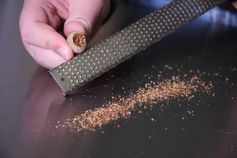
Details: There are a surprising number of things associated with slightly increased or decreased risks of getting cancer. We tend to think of things as pure/good/healthy or impure/evil/harmful, but in practice there’s no distinction. Many medications are poisonous, but they are helpful because they are more poisonous to infections or cancer cells than to the rest of the body.
Sometimes it’s the dose that makes the poison. So sleeping a lot or a little is associated with higher mortality (even when you control for depression and sickness, which of course also affect how much you want or can sleep). There can also be trade-offs between risks and benefits. Moderate alcohol intake can be good for heart health (in middle aged men, at least), but it increases the risk of pancreatic cancer and accidents. Whether something is good for you may depend on who you are, what you do and other risk factors.
Takeaway: As Oscar Wilde said, “everything in moderation, including moderation”; it is probably better to eat a diverse diet than to try to only eat “good” things.
3. [Insert natural product, spice or beverage here] cures cancer, diabetes or heart disease
Why?: There are no “natural” or magic cures for cancer, diabetes or any diseases of ageing.
Details: If these “natural products” actually worked, people consuming them would rarely, if ever, get the diseases of old age and die. The longest mean health and life spans of any sizeable population are in developed countries, and they are mainly attributable to antibiotics, vaccinations, reduction in smoking, improved sanitation, and public healthcare infrastructure. We don’t have artificial “silver bullets” either.

The reason is that most of these conditions are very complex and don’t have neat causes that can be fixed easily. Science is certainly working hard on the problem, but progress is generally piecemeal.
Takeaway: We already have many drugs that were extracted from natural things or are based on them. When the Cochrane collaboration, an international network of thousands of researchers and organisations, compiles the results of large human trials involving natural products, then it is time to take notice.
4. X gene causes you to smile/be grumpy/get diabetes
Why?: No single gene causes a behaviour trait or, except in rare cases, a complex disease.
Details: When a single gene mutation causes something, we call it a monogenic disease. Monogenic diseases include cystic fibrosis, Huntington’s disease and sickle-cell anemia. Complex behavioural traits and diseases of ageing are polygenic and multi-factorial disorders, which depend on both genes and environment. No one gene causes you to be happy, sad or diabetic.
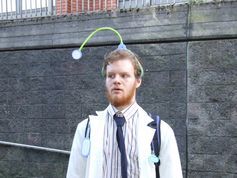
The same applies for brain areas and neurotransmitters: serotonin is involved in mood regulation, but it is also involved in regulating gut movement (90% of it is in the intestines). Adding more serotonin is unlikely to help either function. If you get happy by eating chocolate, it could be because you enjoy the taste and may not be due to chemical reactions within the brain.
Takeaway: If you truly want to find reasons for your traits or propensity towards a complex disease, why not compile a detailed family history?
5. Red wine, turmeric or yoga can help you live longer and be healthier
Why?: Unfortunately, there is no fountain of youth or elixir of life.
Details: Articles that state eating something or doing something can help you live longer generally make their case using a long-lived or comparatively healthy population such as Japan. In these populations, the effects of eating or doing something can be explained by their homogenous genetics and environment. Even so, these people still live the normal maximum human lifespan, which is about 100 years.
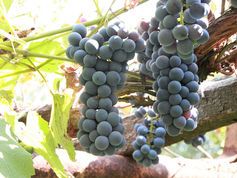
Science has figured out a lot about how ageing works, and some researchers work on slowing it down. However, there is still a vast step from what works on a small lab animal to a useful pill for humans. Stay tuned.
Takeaway: If you want to live longer, don’t smoke, take recommended vaccinations, exercise and just try to enjoy life.
6. A new study from [insert elite university name here] …
Why?: Science, unlike religion, doesn’t work based on authority. Don’t assume that an experiment is well constructed and executed because it’s from an elite university.
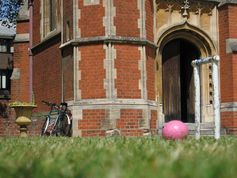
Details: Less elite universities can of course do bad research but “brand names” apply in academia as they do elsewhere. Some universities have or can afford bigger press teams than others. Journalists are trained to provide accurate, nuanced and unbiased analyses to the public. This is regularly practised in the political domain with reports on political scandals and other investigative journalism. We need the same for science.
Takeaway: Would you still read this article if the research was performed at the University of Never-heard-of-them in Where-in-the-world-is-this city?
7. Just-so stories
Why?: In science, laboratory results seldom make simple stories. This is especially true when dealing with biology.
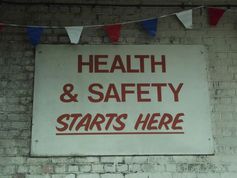
Details: It’s easy to believe a good story, such as how diet habits like those of your ancient ancestors are healthier for you or that women think in a certain way because they were gatherers rather than hunters. It sounds plausible. Unfortunately, sounding plausible often has almost nothing to do with actually being true.
Takeaway: If you come across a neat little just-so story, it is likely over-simplified and stripped of its contextual underpinning, or just plain wrong.
Our aim isn’t to undermine the value of science but to become more critical reporters and readers. The list is by no means exhaustive and if you feel we have missed an important cliché, please comment below, email or tweet us. In the meantime remember, if you want to live longer, have fun and do nothing.
The authors do not work for, consult to, own shares in or receive funding from any company or organisation that would benefit from this article. They also have no relevant affiliations.
This article was originally published at The Conversation.
Read the original article.

Good article except for the one entitled: “Red wine, turmeric or yoga can help you live longer and be healthier”.
There is certainly good scientific evidence that certain actions will help an individual extend hir healthy functional years of life, particularly when all combined together in a complete and self-consistent regimen. In that section you contradicted yourself by stating the “exercise” and “not smoking” were such actions (even though Jeanne Calment smoked for most of her life and likely died earlier as a result of finally stopping smoking). And this has no relationship to maximum life extension which is a whole other story, although there is certainly good evidence that CR and/or IF together with eating highly healthy foods, sufficient muscle activity and perhaps a few evidentially based supplements will extend the average healthy lifespan of a group of humans, even if only a little since humans are naturally much longer lived animals than those for which this has been well shown.